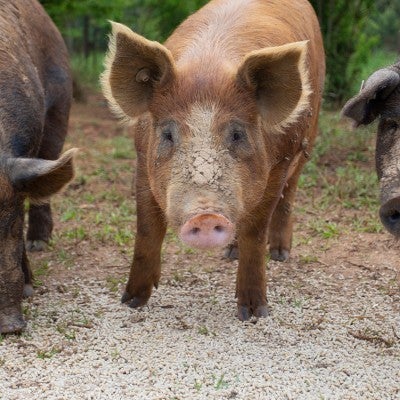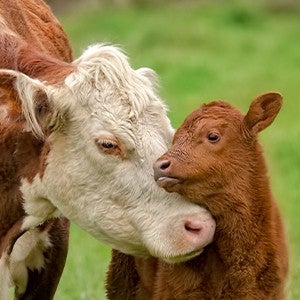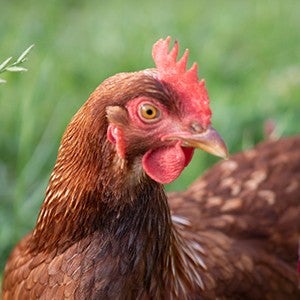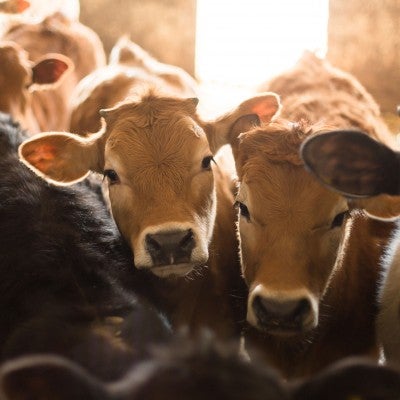Factory farm animals, locked in extreme confinement, suffer some of the worst cruelty imaginable. Egg-laying hens are confined in cages so small they can’t even flap their wings. Mother pigs in the pork industry are locked in metal “gestation crates,” which prohibit them from turning around for virtually their entire lives. Baby calves used in the veal industry are taken away from their mothers and immobilized in similar ways in “veal crates.”
That’s why the Humane Society of the United States needs your help to continue the fight to outlaw the worst factory farm abuses and campaigns to end farm animal cruelty in the top food companies’ supply chains.
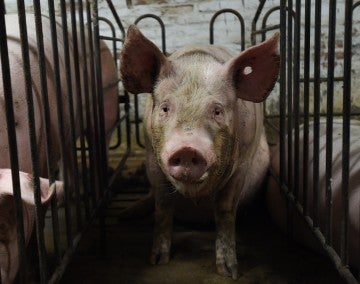
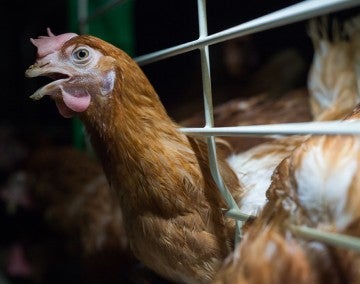
As a result of the relentless efforts of the HSUS and our allies, over 200 major food companies have committed to eliminating the cruelest products from their supply chains and switching to cage-free sourcing. We’ve also led the fight to pass laws in more than a dozen states banning the extreme confinement of farm animals.
With your support, we have won monumental victories and created transformational changes for farm animals—and we will continue to wage campaigns and tirelessly fight until all farm animals are free from cages.
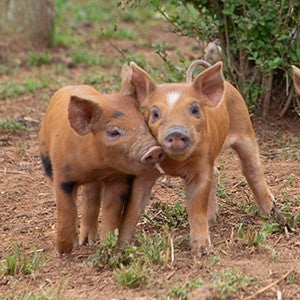
Have committed to phasing out gestation crates in their supply chains.
In 2015, just 6% of U.S. hens were raised cage-free. Now, 29%* are. That’s more than 70 million hens out of cages in just five years; easily one of the biggest successes of the animal welfare movement. In March 2021, Utah became the eighth state to ban battery cages after successful lobbying by the Humane Society of the United States, which has led the efforts on state cage-free measures since the mid-aughts.
Vox [*now over 39% since this article was published]
World’s largest egg producer announces $310 million cage-free investment due to HSUS campaign wins
“A significant number of our customers, including our largest customers, have committed to exclusive offerings of cage-free eggs,” writes Cal-Maine, the biggest egg producer on the planet. “Additionally, several states have now passed or proposed minimum space and/or cage-free requirements,” added the company. “We have invested over $310 million to expand our cage-free production for facilities, equipment and related operations and we continue to make considerable progress with our expansion plans.”
United Egg Producers notes how the HSUS’s cage-free campaigns are transforming the egg industry
Chad Gregory, president of the United Egg Producers, says, “Well, as of right now [prior to Utah and Nevada passing cage-free egg laws] … seven states have passed state laws, that say all eggs produced and sold must be cage-free. [...] And then there are also all these company pledges to go cage-free by 2024/2025. I think there are 229 restaurants, grocery store chains, food manufacturers and so forth that have made these cage-free commitments by 2024/2025. If you add that into the seven states that have passed these state laws, there are some real serious decisions [...] that are facing our industry very quickly.”
